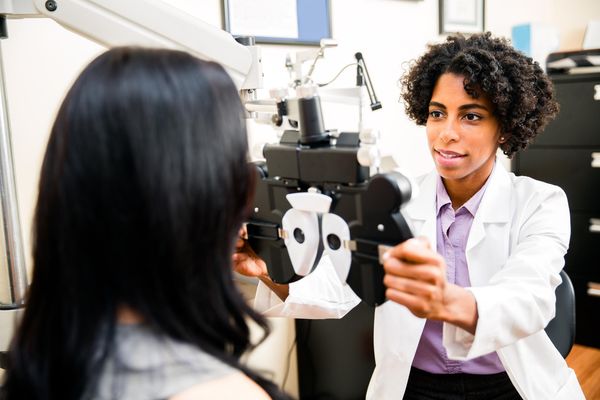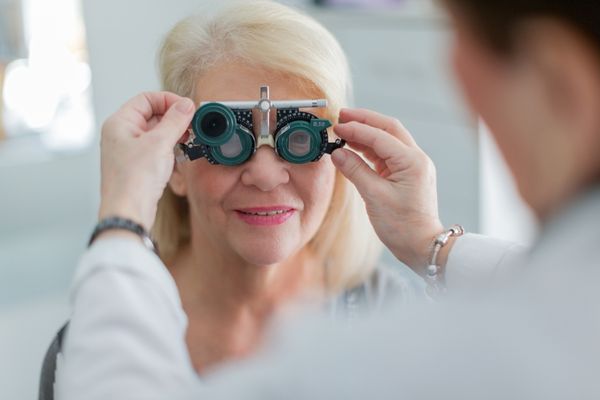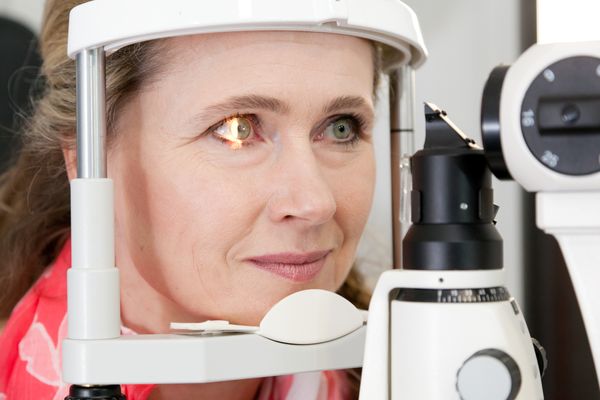I am constantly amazed by the links between how we live and every aspect of our health. While it's no surprise that your diet and levels of exercise can affect the health of your heart, it probably comes as a shock to learn those factors can also affect the health of your eyes.
In fact, many of the same things that lead to common chronic conditions like diabetes, atherosclerosis and even dementia also play a role in the health of your eyes.
That's why I've come up with the 10-point Eye Health Plan. I'm no eye care expert, but I am a healthy lifestyle expert. Here's what I recommend for protecting your eyes:
- Quit smoking. If you smoke, you're much more likely to develop age-related macular degeneration, or AMD, than nonsmokers. AMD is the most common cause of blindness in those over 65. And while there are some ways to slow its progression, there is no cure.
- Wear sunglasses and a wide-brimmed hat when you're in the sun. These two simple steps can reduce your exposure to eye-damaging UV rays up to 18-fold! And, if you wear contacts, ask your eye care specialist about contact lenses with UV protection.
- Watch your weight. What's weight got to do with your eyes? A lot. Being overweight is a major risk factor for developing Type 2 diabetes. And diabetic retinopathy is the leading cause of blindness in those under 65. Not only that, but the Nurses' Health Study from Harvard Medical School found women with a body mass index of 30 or more (considered obese) were 36 percent more likely to develop cataracts, possibly because of some relation to high blood glucose levels.
- Take fish oil supplements daily, or eat fish two or three times a week. There's some evidence that the omega-3 fatty acids found in fish and other foods may reduce your risk of AMD. Conversely, limit the amount of vegetable oil in your diet; there's some evidence it can increase your risk.
- Eat three or more servings of fruit a day. In one study, women who did this reduced their risk of AMD by 36 percent compared to those who ate less than 1.5 servings.
- Eat your spinach. What Popeye didn't know was that spinach is a rich source of lutein and zeaxanthin, powerful antioxidants that can reduce the risk of certain eye diseases, like AMD. Other good sources include any kind of leafy green vegetable such as collards and kale, as well as eggs and orange-colored fruits.
- See your eye care professional for a full vision examination at least once every two years. Go more often if you have diabetes or any other eye-related condition.
- Get a 30-minute walk in every day. There's some evidence that regular exercise can reduce the intraocular pressure in people with glaucoma. In one study, glaucoma patients who walked briskly four times per week for 40 minutes lowered the pressure within their eyes enough so they could stop taking their glaucoma medication.
- Change your eye makeup every three to six months. That means new mascara, liner and powder. The makeup becomes contaminated with bacteria from your lashes and lids and can infect your eye.
- Don't fall asleep in your daily-wear contact lenses. In fact, don't ever wear them longer than they're designed to be worn. If you want contacts that you can wear overnight, talk to your eye care professional about whether they are appropriate for you.







